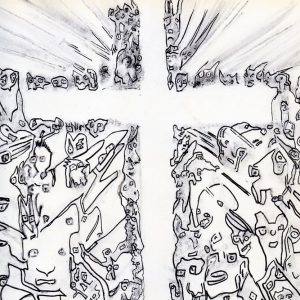The Name and Nature of Poetry
‘The question should be fairly stated, how far a man can be adequate, or even good (so far as he goes) though inadequate critic of poetry, who is not a poet, at least in posse. Can he be an adequate, can be a a good critic, though not commensurate? But there is yet another distinction. Supposing he is not only not a poet, but a bad poet! What then?‘ –Coleridge, Anima Poetae, pp.127ff.
A.E.Housman, Classical Scholar and Poet, was asked to give ‘The Name and Nature of Poetry Lecture in 1933.’ He had not spoken before publicly on poetry. He was a reclusive and enigmatic man. For anyone with a serious interest in poetry it is still a valuable reading, 75 years on.
Houseman argued that the name of poetry should not be squandered by stretching it to cover verse in general. “To transfuse emotion not to transmit thought” is the peculiar function of poetry. His lecture analyses poets such as Chaucer, Dryden, Pope, Coleridge, Black and Shakespeare. He identifies poetry as he sees it with quotations and he denounced wit and sham poetry masquerading as the genuine article!

Come, worthy Greek, Ulysses, come,
Possess these shores with me:
The winds and seas are troublesome,
And here we may be free.
Here may we sit and view their toil
That travail in the deep,
And joy the day in mirth the while,
And spend the night in sleep.
“Here we are beginning to fly with Pegasus. Indeed a promising young poetaster could not do better than lay up the stanza in his memory, not necessarily as a pattern to set before him, but as a touchstone to keep at his side. Diction and movement alike, it is perfect. It is made out of the most ordinary words, yet it is pure from the least alloy of prose; and however much nearer heaven the art of poetry may have mounted, it has never flown on a suerer or lighter wing.
It is perfect, I say; and nothing more than perfection can be demanded of anything: yet poetry is capable of more than this, and more therefore is expected from it. There is a conception of poetry which is not fulfilled by pure language and liquid versification, with the simple and so to speak colourless pleasure which they afford, but involves the presence in them of something which moves and touches in a special and recognisable way:
Sweet bird, thy bower is ever green,
Thy sky is ever clear;
Thou hast no sorrow in thy song,
No winter in thy ear.
There a new element has stolen in, a tinge of emotion. And I think that to transfuse emotion-not to transmit thought but to set it up in the reader’s sense a vibration corresponding to what was felt by the writer–is the peculiar function of poetry.
from ‘The Name & Nature of Poetry’ by AE Houseman, Cambridge, 1933.
Harry Matthews
un poète et peintre
